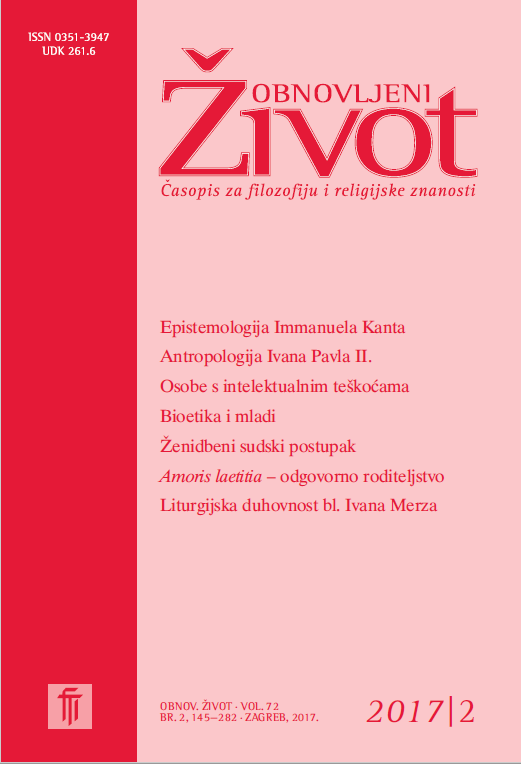The Original Path to the Realization of Humaneness in the Thoughts of John Paul II
Keywords:
man, cultivation, shame, human body, personality, sociability, love, John Paul IIAbstract
This article provides an overview of anthropological truths based on the experience of original man which can be understood through the return to man’s original state, before the first sin. Although, after the experience of shame, these truths have been burdened by pain and suffering and marginalised by contemporary society, they remain everlasting principles for the building of a humane society, the premise for personal fulfillment and the well–being of civilization as a whole. Original truths are inherent in human beings and provide them with perennial values such as the dignity of the human body, the value of the person, freedom and love which should be identified as the primary tasks of parenting, the family and the Church. These truths render humanity joyful and are intertwined, affecting a binding, continuous cycle which aims at the realization of human communion in the love of God and the revival of this very love through self–giving. This is what generates human subjectivity. Based on the above claims, we aim to clarify the original anthropological truths and their significance in the process of cultivating humaneness. The first section refers to the importance of the original human experience. The second and the central section of the article deal with the cycle of anthropological truths based on the original absence of shame in the very first human beings (Gen 2:25). The original human body is the repository of an individual’s values, communication, pro–existence associated with parenthood, and the affirmation of the person in freedom and self–giving, which ultimately lead to the communion of Love and Life. The third section refers to the original anthropological truth aimed at building a humane society as the primary task of parents and the Church, but all for the sake of society as a civilization of love.
Downloads
Published
Issue
Section
License
Jednom prihvaćeni članak obvezuje autora da ga ne smije objaviti drugdje bez dozvole uredništva, a i tada samo uz bilješku da je objavljen prvi put u Obnovljenom životu. Uredništvo će obavijestiti autora o prihvaćanju ili neprihvaćanju članka za objavljivanje.
Članci objavljeni u časopisu se, uz prikladno navođenje izvora, smiju besplatno koristiti u obrazovne i druge nekomercijalne svrhe.


